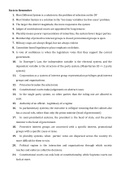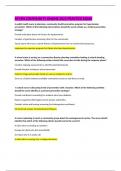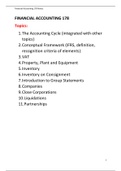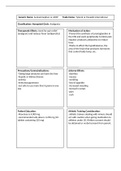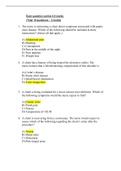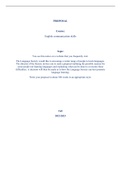Samenvatting
Summary ICP Facts to Remember!
- Vak
- Instelling
- Boek
This document includes facts that are important to remember for the exam. These facts have been written in accordance with the practice questions provided by Professor Kopecky. Since the answers to that practice question aren't given, some facts listed may not be completely true.
[Meer zien]
